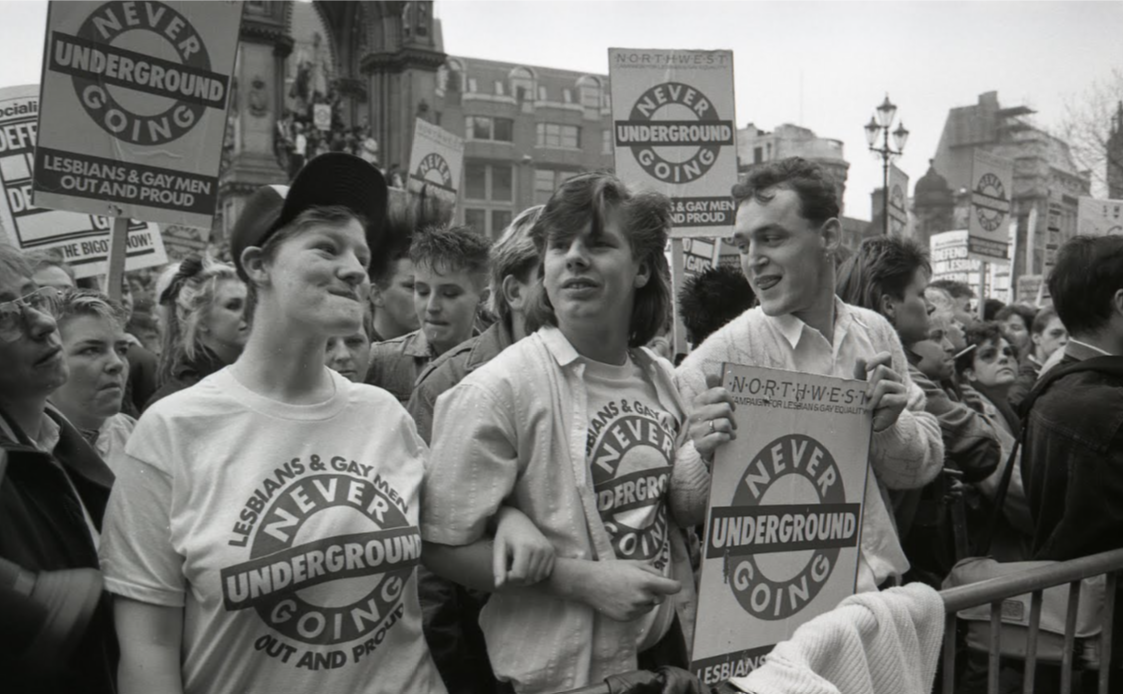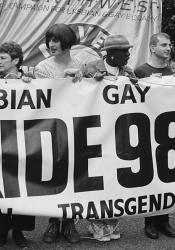Albert Square, Manchester, UK
On February 20, 1988, twenty thousand people gathered in Albert Square in Manchester to protest Section 28 of the Local Government Act. The protests were planned by both the city council and members of a campaign for LGBTQ+ rights. Many local businesses supported their efforts as well (Williams). The protests came about because LGBTQ+ people and their allies were horrified by the blatant homophobia of Section 28, so they took to the streets to rally against it. It is important to note that the beginning of a shift in perspective in Manchester regarding LGBTQ+ rights was already underway. By the mid-1980s, Manchester, “...had a well‐established gay centre, a local gay press and proactive...council championing gay and lesbian rights,” (Cook 5). All of this set the stage for future activism and protests in the city.
The protests on February 20, 1988 occurred when Section 28 was first being introduced, a full two months before it was officially enacted. LGBTQ+ people were just starting to feel safer being themselves in public in Manchester when Section 28 hit (Williams). Many people worried that Section 28 would force them into hiding again or affect the attitude of the police toward LGBTQ+ people and events. However, since the political and public opinions towards LGBTQ+ issues were starting to change in Manchester, there was no shortage of people wanting to gather to protest Section 28. The introduction of Section 28, as well as the peak of the AIDS crisis, spurred many people into taking direct political action in regard to LGBTQ+ issues.
On the day of the protest, numerous LGBTQ+ rights activists showed up to make speeches or give performances, like Tom Robinson and Ian Mckellen. The protests were greatly inspiring to the LGBTQ+ community. It gave people confidence to see so many people gather and work together to fight for LGBTQ+ rights (Williams). The protests were also incredibly influential in regard to politics. They gained recognition at a national level and helped encourage LGBTQ+ activism throughout the UK. This event also started conversation about the homophobia and other negative effects caused by Section 28.

Works Cited
Cook, Matt. “Local Turns: Queer Histories and Brighton’s Queer Communities.” History compass 17.10 (2019): 1-12. Web.
Williams, Jennifer. “Thirty Years Ago Manchester Held a Huge March to Protest against Section 28 - It Would Change History.” Manchester Evening News, 18 Feb. 2018, www.manchestereveningnews.co.uk/news/greater-manchester-news/thirty-years-ago-manchester-held-14306077.
Parent Map
Coordinates
Longitude: -2.242630500000

